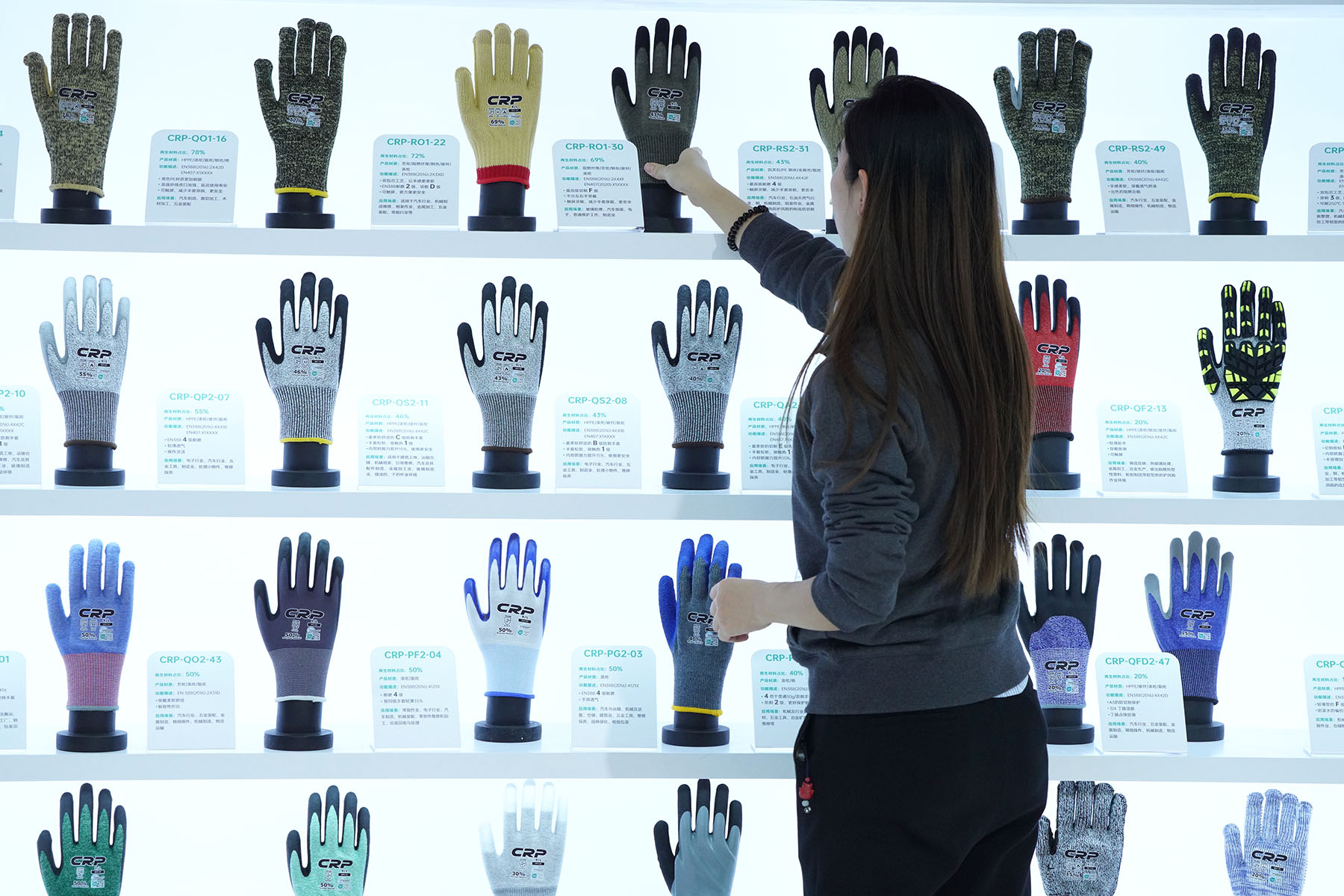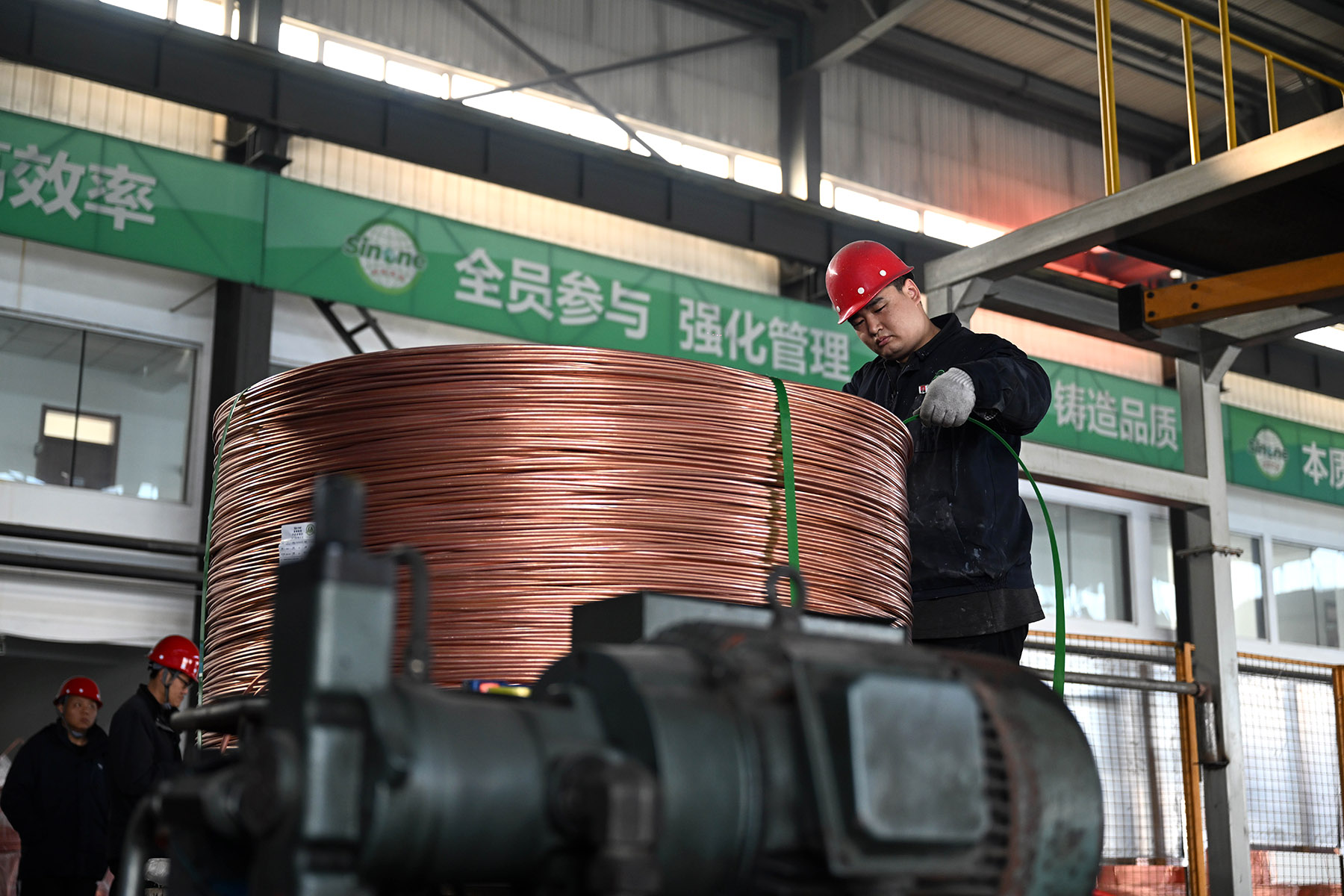Demonstration project improves efficiencies by recovering valuable materials from old mobile phones, solar cells

Editor's note: China Daily is publishing a series illustrating the country's efforts to achieve its carbon peak and carbon neutrality goals
China launched a new demonstration project for the safe recycling and disposal of mobile phones in northern China's Tianjin and South China's Shantou of Guangdong province on Jan 18.
China Resources Recycling Group, a newly established centrally administered State-owned enterprise headquartered in Tianjin, became the first in the country to integrate online and offline operations for recycling, dismantling and smelting mobile phones.
Mobile phones hold significant recycling value due to the presence of precious metals like gold, silver and copper, however, privacy concerns have hindered their reuse.
It is estimated that during the 14th Five-year Plan (2021-25) period, 6 billion mobile phones were discarded in China, with 54.2 percent not being recycled, highlighting a need for solutions, according to the China National Resources Recycling Association.
READ MORE: Green fashion turns old plastics into profits
In response, the group partnered with State-owned enterprises, including China Post and China Energy Conservation and Environmental Protection Group, to establish an online platform offering door-to-door and confidential mail recycling services.
Discarded phones undergo mechanical destruction and smelting under strict surveillance to recover valuable metals.
Liu Yu, Party secretary and chairman of the board of the group, noted that it aims to spearhead efforts in scientific innovation in recycling and open wider to collaboration.
"We will safeguard national resource security and accelerate the establishment of a technology-innovation enterprise that serves national strategies and leads in high-quality development," he said.

Industrial upgrade
Within three months, the SOE has launched an AI-powered sorting and inspection technology for regenerated steel with a leading level of accuracy domestically; conducted research on new energy photovoltaic functional materials and the high-value recycling of retired photovoltaic modules; and built strategic partnerships with Nankai University, Tianjin University and research institutes of the Chinese Academy of Sciences.
Liu Yubin, a professor at the Business School of Tianjin University of Finance and Economics, said the group is poised to catalyze industrial upgrades and transformations.
"The introduction of new technologies in this sector is anticipated to usher in novel business models in Tianjin and throughout China," he said.
While the recycling economy in China has experienced rapid growth, it still faces challenges in terms of technology and skilled personnel.
Liu expects the country to implement more policies aimed at cultivating top-tier talent to further bolster the economy.
He said that China lags behind countries such as Germany, France and Japan in the realm of ecological environmental protection. "However, China has emerged as a front-runner in internet applications, boasting a wealth of diverse application scenarios."
Liu suggested that the experience gained from internet applications could be leveraged in the recycling economy, particularly in sectors such as new energy vehicles and energy dismantlement.
"This transition presents a mix of challenges and opportunities for the country as it seeks to innovate and advance in these areas," he said.
Fu Weifang, an associate professor at the Civil Aviation University of China, said the country's aviation sector could benefit from the establishment of the new SOE.
ALSO READ: Booming recycling market benefits environment
"Everyone knows that for an aircraft, once it is dismantled, the whole body is full of treasures, with the vast majority of components and materials being recyclable.
"It is understood that in Europe, the dismantling recycling rate can reach around 90 percent. For instance, if 90 percent of an aircraft can be recycled and reused, then these dismantled components, after maintenance and recertification by relevant authorities, can be reinstalled on other aircraft for continued use," he said.
He pointed out that the newly established SOE could explore numerous collaboration opportunities with the Civil Aviation University of China in the realm of resource recycling solutions.
He highlighted that expanding the scope to encompass the storage of decommissioned aircraft, dismantlement and used serviceable material exchange platforms represents additional avenues for growth in China's aircraft waste solutions.
"From the supply chain to recycling, significant advancements in industrial infrastructure are anticipated to materialize," Fu said.


